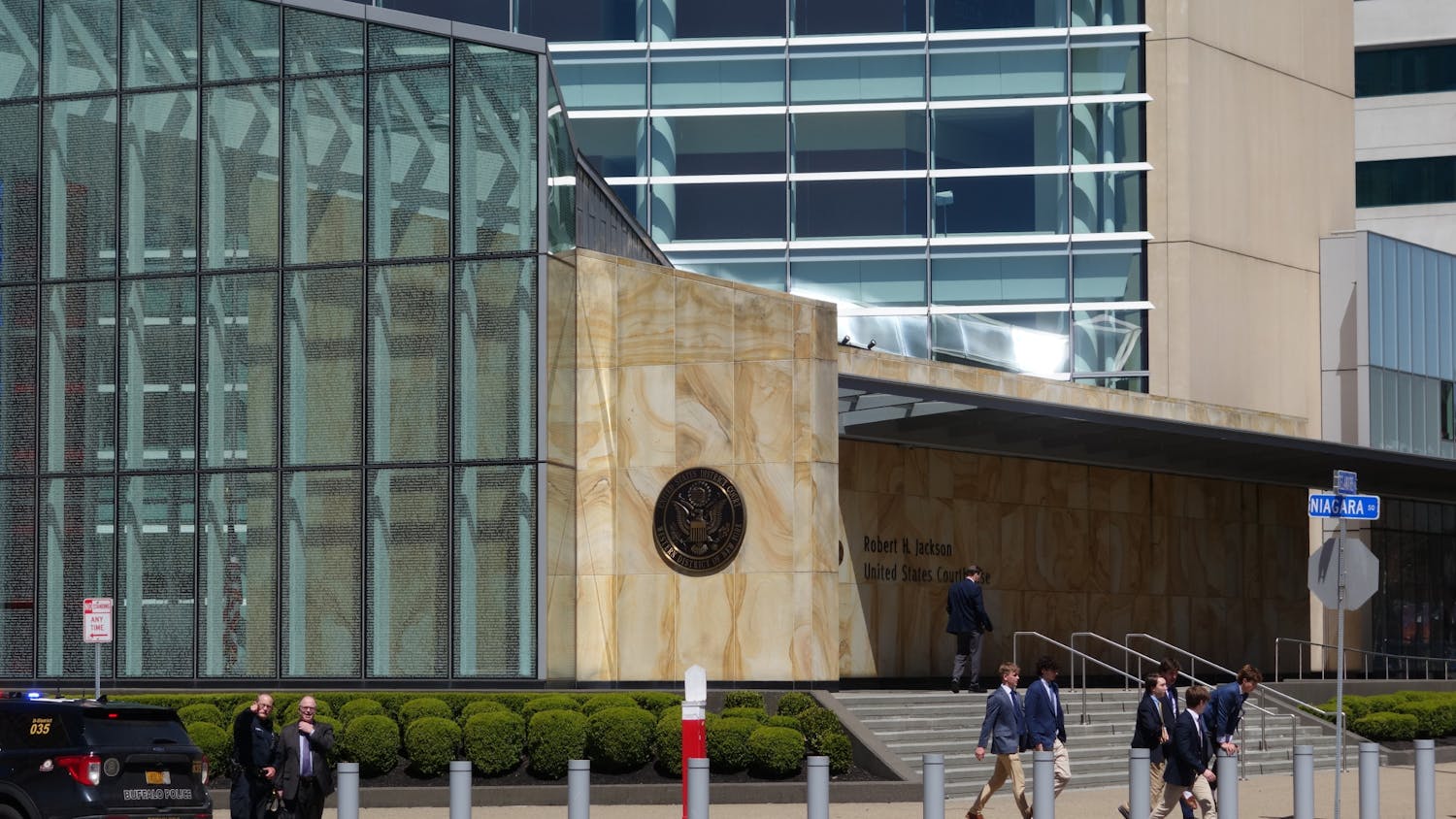Anyone who opened up Monday's Spectrum to the arts page was greeted at once by pornography and profanity, two things you usually don't see in this newspaper. Some people might have found neither to be in very good taste, but they were both all in good fun for our April Fool's issue. Besides, the can't-miss porno photo (for our movie review of "Sexy Nurses 2") was mostly blurred, and the "Spectrum Sh*tlist" was clearly not spelled out in full, so our moral bases were covered.
Still, the decision over what to censor on that page had its hang-ups. If we're just going to use one asterisk, one editor said, we might as well spell out sh*t. "No, we can't do that," was my reply, "but if we use two asterisks, no one will know what the word is. Now, should we blur out both the nurse's legs or just one?"
The answer, in case you didn't see it, was to blur out one of her feet, but that's beside the point. Faced with a decision about self-censorship, I now ask myself whether we made the right choice. For the porn image, I think we did. For the profanity, I don't know.
Why doesn't The Spectrum print profanity? There's nothing in our charter or by-laws against it. The choice is a matter of style and preference made years before I was even a freshman here. Today we're a little more lenient, printing "ass" and "bitch" on occasion, but certain words are simply not even considered, and rightly so. The Spectrum has a certain level of professionalism it maintains, and that means not using the words sh*t and f**k.
But what has piqued my curiosity about our own policy isn't just this April Fool's issue. It started with the Muhammad cartoons and the controversial decision one UB professor made to re-print them in a magazine he runs. In a March editorial, we took the stance that professor emeritus Paul Kurtz had missed the boat, that there was no longer a reason to publish them, other than be inflammatory or gain publicity.
The response Kurtz subsequently wrote us gave me pause. "I am surprised by the position taken by the editors," he wrote, "particularly at a university which is committed to freedom of inquiry of all sides of questions...and above all, the right of dissent."
Then, at a journalism conference during spring break, a professor from a Florida college told us we hadn't done justice to the layout for a sports story about UB's basketball fans. "It needs a headline to match this awesome photo," he told us. "What do these crazy fans say at the games? F**k Ohio? Perfect! That's your headline, F**k Ohio, in the biggest font you can."
When he suggested that, I joked we'd have to throw a few asterisks in there. After all, we aren't Generation. "Come on," this professor told us, "Every once in a while won't kill you. Look at your audience, it's college kids."
And all this in context of a woman coming into our office a few weeks ago to complain about our Dave Attell review. I believe she had trouble with the quote, "Now that have Viagara, but I'm old school. I'm used to flipping a girl over and f***ing her with my thumb."
Now, I'm not saying the aforementioned string of events has led me to any sort of revelation, but they have reaffirmed what I already believed: words like "f**k" can offend you, and that's within your right to be offended, but words only hold a power over us if we let them. It's people who make words iconic, not the mere word itself.
I'm not in the practice of praising Generation, but I think their policy on profanity makes more sense than ours for a college publication: use it sparingly, almost never in their features, and only when there's a reason for it or a particular emphasis. To paraphrase George Carlin, obscenities are language's spices, sometimes the difference between a decent meal and an outstanding one.
If the riots over the Muhammad cartoons have shown us anything, it's what happens when we put too much stock in symbols, when we find ourselves at the mercy of imagery and language, taking ourselves too seriously, which in turn breeds nothing but ignorance and arrogance. Basically, you get a society of people who can't laugh at an April Fool's issue, a culture of fundamentalists.
Profanity is a part of language, and there are times when it adds enough to the thought that one would be doing their profession a disservice not to use it. If you don't like it, f**k off.





